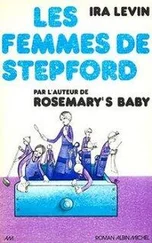At ten-forty he was in the office of the assistant executive director of the Rush-Gaddis Adoption Agency, a lean and handsome gray-haired woman, Mrs. Teague. “None at all,” she told him.
“None?”
“None. She wasn’t a caseworker; she wasn’t qualified for that. She was a file clerk. Of course, her lawyer, when she was fighting extradition, wanted to present her in the most favorable light, so he implied that she played a more important role here than she actually did; but she was simply a file clerk. We notified the government lawyers—we were very anxious, naturally, to have our association with her put in its true perspective—and our head of personnel was subpoenaed as a witness. She was never called on to testify, though. We considered issuing some sort of statement or press release afterwards, but we decided that at that point it was better simply to let the matter fade away.”
“So she didn’t find homes for babies.” Liebermann pulled at his ear.
“Not a one,” Mrs. Teague said. She smiled at him. “And you have the shoe on the wrong foot: it’s a question of finding babies for homes; the demand far exceeds the supply. Especially since the change in the abortion laws. We’re able to help only a small fraction of the people who apply to us.”
“Then too? In 1960 to ’63?”
“Then and always, but it’s at its worst right now.”
“A lot of applications?”
“Over thirty thousand last year. From every part of the country. Of the continent, in fact.”
“Let me ask you this ,” Liebermann said. “A couple comes to you, or writes to you, in that period, 1961, ’62. Good people, fairly well-off. He’s a civil servant, steady job. She’s—now let me think a second— she …is about twenty-eight or twenty-nine, and he’s fifty-two. What chance is there for them to get a baby from you?”
“None whatsoever,” Mrs. Teague said. “We don’t place where the husband’s that old. Forty-five is our cut-off, and we’ll only go that high if there are special factors involved. We place mostly with couples in their early thirties—old enough to be stable in their marriage and young enough to assure the child of continuing parental presence. Or the likelihood of it, I should say.”
“So where would a couple like that get a baby?”
“Not from Rush-Gaddis. There are agencies a bit more flexible. And of course there’s the gray market. Their lawyer or doctor might know of a pregnant teen-ager who doesn’t want to abort. Or who can be paid not to.”
“But if they came to you , you turned them down.”
“Yes. We’ve never placed with anyone over forty-five. There are thousands of more suitable couples, waiting and praying.”
“And the applications that were turned down,” Liebermann said, “they were filed maybe by Frieda Maloney?”
“By her or one of the other clerks,” Mrs. Teague said. “We keep all applications and correspondence for three years. It was five then, but now we’ve cut it down; we’re short of space.”
“Thank you.” Liebermann stood up with his briefcase. “You helped me very much. I’m grateful to you.”
At a telephone mini-booth across the street from the Guggenheim Museum, with his suitcase and briefcase on the sidewalk beside him, he called Mr. Goldwasser at the lecture bureau.
“I have some very bad news. I have to go to Germany.”
“When?”
“Now.”
“You can’t! You’re at Boston University tonight! Where are you?”
“In New York. And tonight I have to be on a plane.”
“You can’t be! You accepted the booking! They’ve sold the tickets! And tomorrow—”
“I know, I know! You think I enjoy canceling out like this? You think I don’t know it’s a headache for you, and for them, and you could even sue me? It’s—”
“Nobody’s talking about—”
“It’s life or death, Mr. Goldwasser. Life or death. Maybe even more.”
“God damn it. When will you be back?”
“I don’t know. I may have to stay there awhile. And then go someplace else.”
“You mean you’re canceling the whole rest of the tour? ”
“Believe me, if I didn’t have to—”
“This has only happened to me once in eighteen years, and then it was a singer, not a responsible person like you! Look, Yakov, I admire you and I wish you well; I’m speaking not just as your representative now but as a fellow human, a fellow Jew. I ask you to think very carefully: if you cancel a whole tour this way, on a moment’s notice—how can we possibly go on representing you? No one will represent you. No group will contract for you. You’re finishing yourself as a speaker in the United States of America. I beg you, please think .”
“I thought while you was talking,” he said. “I have to go. I wish I didn’t.”
He took a taxi out to Kennedy Airport and exchanged his return ticket to Vienna for one to Düsseldorf via Frankfurt: the earliest flight out, leaving at six o’clock.
He bought a copy of Farago’s book on Bormann and spent the afternoon sitting by a window reading.
AN INDICTMENT CHARGINGFrieda Altschul Maloney and eight other persons with mass murder at the Ravensbrück concentration camp was expected to be handed down at any moment; so when, on Friday, January 17th, Yakov Liebermann presented himself at the offices of Frau Maloney’s attorneys, Zweibel & Fassler of Düsseldorf, he wasn’t accorded a warm or even room-temperature welcome. But Joachim Fassler was lawyer enough to know that Liebermann hadn’t come there to gloat or kill time; there was something he wanted, and therefore something he would offer or could be asked for in exchange. So, after switching on his recorder, Fassler received Liebermann in his office.
He was right. The Jew wanted to meet with Frieda and question her about certain matters in no way related to her wartime activities and having no bearing whatsoever on the approaching trial—American matters involving the period from 1960 to 1963. What American matters? Adoptions that she or someone else had arranged on the basis of information she had got from the files of the Rush-Gaddis Agency.
“I know of no such adoptions,” Fassler said.
Liebermann said, “Frau Maloney does.”
If she saw him and answered his questions fully and candidly, he would tell Fassler about some of the testimony that was going to be presented against her by witnesses he had located.
“Which ones?”
“Not their names, only some of their testimony.”
“Come now, Herr Liebermann, you know I’m not going to buy that kind of pig in a poke.”
“The price is cheap enough, isn’t it? An hour or so of her time? She can’t be very busy, sitting in her cell.”
“She may not want to talk about these alleged adoptions.”
“Why not ask her? There are three witnesses whose testimony I know about. You can either hear it cold in the courtroom or have a preview tomorrow.”
“I’m truly and honestly not that concerned.”
“Then I guess we can’t do business.”
It took four days to work it all out. Frau Maloney would speak to Liebermann for half an hour about the matters that interested him, provided that A) Fassler was present; B) no fourth party was present; C) nothing was written down; and D) Liebermann permitted Fassler to search him for a recording device immediately prior to the interview. In return Liebermann would tell Fassler all he knew about the probable testimony of the three witnesses and give each one’s age, sex, occupation, and present mental and physical condition, with particular regard to any scars, deformities, or disabilities resulting from experiences at Ravensbrück. The testimony and description of one witness would be supplied prior to the interview; those of the other two subsequent to it. Agreed and agreed.
Читать дальше











